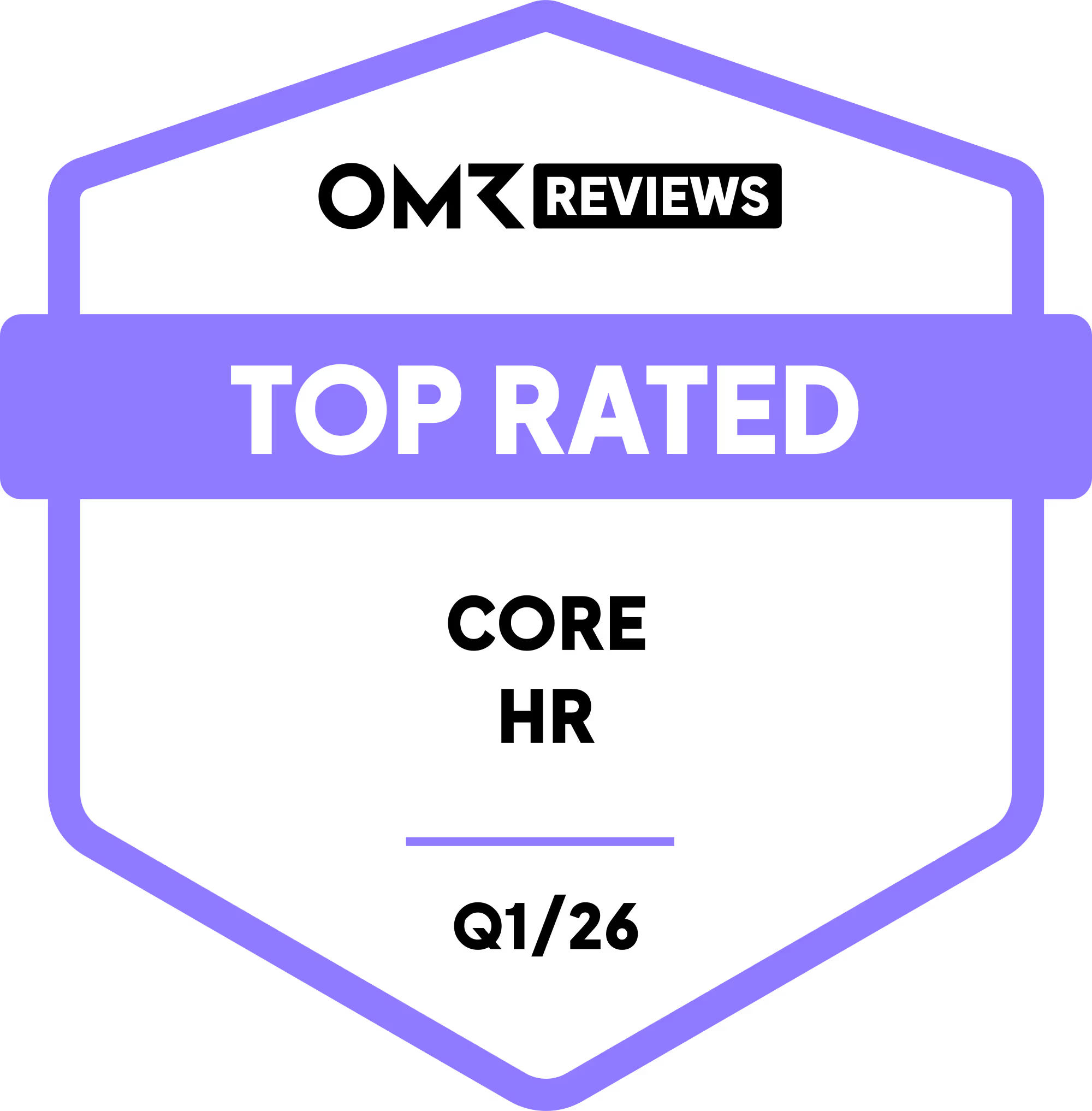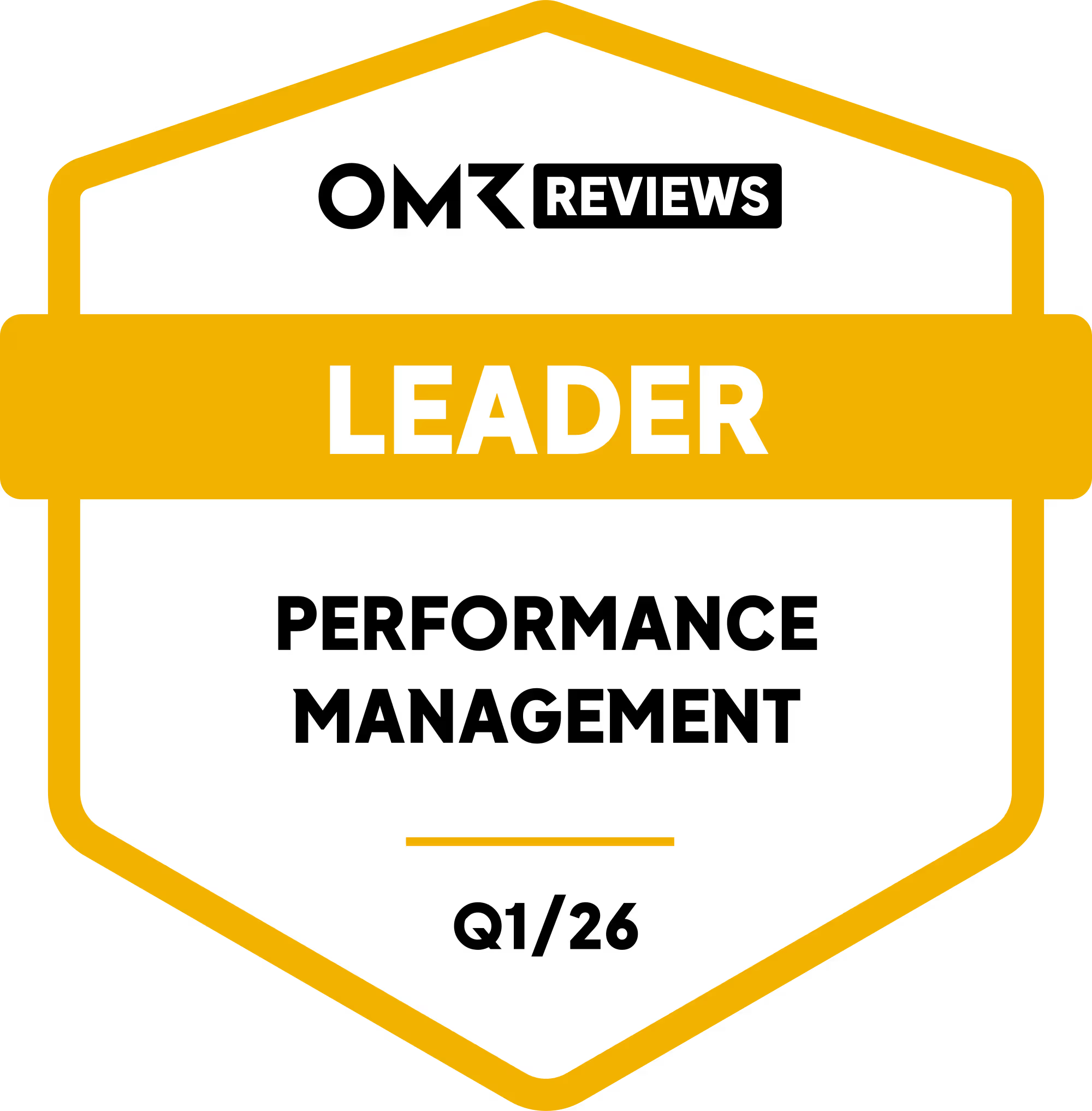20 aussagekräftige konstruktive Feedback-Beispiele für ein positives Arbeitsumfeld

Es ist nicht übertrieben zu sagen, dass Feedback wie Treibstoff für ehrgeizige Organisationen ist. Es ermöglicht den Teammitgliedern, ihre Ideen und Sichtweisen auszutauschen, kontinuierlich zu lernen und sich weiterzuentwickeln und sich beruflich weiterzuentwickeln.
Es ist auch erwähnenswert, dass die Leute mögen Feedback — Untersuchungen zeigen, dass Mitarbeiter, die regelmäßig Feedback erhalten, 3,2-mal motivierter sind, herausragende Arbeit zu leisten, und sich 2,7-mal engagierter fühlen.* Das bedeutet, dass sie besser positioniert sind, um ihr Bestes zu geben und die bestmöglichen Ergebnisse für ihr Unternehmen zu erzielen.
Der Begriff „Feedback“ umfasst jedoch viele Nuancen. Manager und Teamleiter müssen achtsam und international darauf achten, wie sie ihre Sichtweisen in Berichten teilen, um positives, konstruktives Feedback zu geben.
In diesem Artikel wird untersucht, was konstruktives Feedback ist und warum es für Manager und Führungskräfte eine so wichtige Fähigkeit ist, sich weiterzuentwickeln. Wir haben auch 20 Beispiele für das Geben von Feedback beigefügt, das Sie als Inspiration nutzen können.
*Gallup, 2023
💪 Geben Sie den Mitarbeitern das Feedback, das sie wollen!
Untersuchungen zeigen, dass Experten sich nach mehr Feedback sehnen, und unsere Vorlage kann Ihnen dabei helfen, dies zu erreichen.
👉 Laden Sie diese kostenlose Anleitung herunter
Was ist konstruktives Feedback?
Konstruktives Feedback ist Feedback, das jemandem helfen soll, sich zu verbessern und ein positives Ergebnis zu erzielen. Konstruktives Feedback ist einfühlsam, unterstützend, kooperativ und fördert das berufliche Wachstum und die berufliche Entwicklung. Es unterscheidet sich von herkömmlicher konstruktiver Kritik an Mitarbeitern, da es weniger darauf ausgerichtet ist, was der Einzelne nicht richtig gemacht hat. Stattdessen werden Wachstumsbereiche aufgezeigt und gleichzeitig der Schwerpunkt darauf gelegt, umsetzbare Wege zur Verbesserung in der Zukunft zu finden.
Konstruktives Feedback ist kein einmaliges Ereignis — es sollte ein kontinuierlicher Prozess sein, der alle Ebenen einer Organisation durchzieht. Auf diese Weise kann es im Laufe der Zeit zu einem gesunden, erfolgreiche Feedbackkultur wo sich die Teammitglieder wohl fühlen und motiviert sind, miteinander zu sprechen und ihre Performance. Das ist nicht nur wichtig, um eine starke Unternehmenskultur, aber es ist auch der Schlüssel zu entfessle dein Potenzial. In der Tat ist eine Feedback-Kultur einer der wichtigsten Treiber positiver organisatorischer und finanzieller Ergebnisse.
Betrachten wir ein kurzes Beispiel für konstruktives Feedback. Stellen Sie sich vor, Sie sind Manager und haben festgestellt, dass ein neues Teammitglied, das vor drei Monaten in die Organisation eingetreten ist, Probleme hat. Sie geben ihre Arbeit zu spät ab und sie entspricht nicht den internen Standards. Sie scheinen auch zu zögern, Fragen zu stellen oder in Besprechungen zu sprechen.
Anstatt sich mit ihnen zu treffen und alle Arten aufzulisten, auf die sie einen Fehler gemacht haben, könntest du in Betracht ziehen, einen schnellen 1:1 -Check-in zu organisieren und etwas zu sagen wie: „Ich freue mich sehr, Sie als Teammitglied zu haben, aber ich habe festgestellt, dass Sie mit Ihrer aktuellen Arbeit Schwierigkeiten haben. Kann ich irgendetwas tun, um dir zu helfen? Wären Sie daran interessiert, sich wöchentlich zu treffen, um sich regelmäßig beraten zu lassen, damit Sie Ihre Aufgaben besser in den Griff bekommen?“
Anstatt sich auf das Negative zu konzentrieren, ist das ein gutes Beispiel für Entwicklungsfeedback, das den Mitarbeiter hört und ihm einen klaren Weg zur Verbesserung aufzeigt.
💡 Wussten Sie, dass das Arbeitsumfeld einen erheblichen Einfluss darauf hat, wie wahrscheinlich es ist, dass Mitarbeiter auf das Feedback reagieren, das sie erhalten?
Laut Lisa Steelman, PhD für Amerikanische Psychologische Vereinigung, „Wir haben festgestellt, dass Führungskräfte in einer Umgebung, die Feedback erhalten, im Laufe der Zeit eine viel bessere Leistungssteigerung verzeichneten als Führungskräfte in einer Umgebung, in der Feedback nicht unterstützt wird... Dies zeigt, dass Feedback nicht in einem luftleeren Raum stattfindet, und wir müssen die Voraussetzungen schaffen, indem wir ein wachstumsorientiertes Umfeld schaffen.“
Es ist zwar wichtig, konstruktives Feedback für Kollegen zu geben, aber genauso wichtig ist es, ein nachhaltiges Feedback-Kultur im Laufe der Zeit. Viele Unternehmen finden es auch hilfreich, es zu verwenden Feedback-Tools für Mitarbeiter um das Engagement zu steigern und ihre Feedback-Kultur zu pflegen
Warum ist konstruktives Feedback eine wichtige Fähigkeit für Manager?

Einer der wichtigsten Teile der Arbeit eines Managers ist es, häufiges, wirkungsvolles Feedback zu geben. Letztlich sind sie dafür verantwortlich, ihre Berichte zu leiten und zu unterstützen und sicherzustellen, dass sie über alles verfügen, was sie benötigen, um sich in ihren Rollen weiterzuentwickeln und erfolgreich zu sein. Der Austausch von nützlichem Feedback ist ein großer Teil dieses Prozesses.
Viele moderne Fachkräfte haben jedoch nicht das Gefühl, genug davon zu bekommen — unser Bericht von 2023 ergab, dass 75% der Arbeitnehmer wünschen sich mehr Feedback und Anerkennung von ihren Managern. Dies ist also ein Bereich, auf den Teamleiter ihre Aufmerksamkeit richten müssen, um die Zufriedenheit und das Engagement der Teammitglieder zu steigern und sie gleichzeitig zu Höchstleistungen zu bewegen.
Die Fähigkeit des Teilens konstruktiv Feedback ist für Manager besonders wichtig, da es sich auf Wachstum und Verbesserung konzentriert. Effektive Teamleiter sollten ihre Aufmerksamkeit nicht darauf richten, was die Teammitglieder falsch machen. Vielmehr sollten sie sich von Beispielen für Entwicklungsfeedback inspirieren lassen und ihre ganze Energie darauf verwenden, ihren Teammitgliedern zu helfen, in Zukunft Fehler zu vermeiden und insgesamt bessere Fachkräfte zu werden.
💡 Wenn du ein bist neuer Manager und wenn Sie Hilfe benötigen, um effektives Feedback zu geben, schauen Sie sich unsere an Leitfaden für Feedback geben in fünf Schritten.
20 effektive Feedback-Beispiele für verschiedene berufliche Kontexte
Unabhängig davon, ob Sie in einer Führungs-, Management- oder Einzelposition in Ihrem Unternehmen tätig sind, werden Sie im Laufe Ihrer Karriere mit einer Vielzahl von Situationen konfrontiert, in denen Sie Verbesserungsfeedback weitergeben müssen.
Um Ihnen zu helfen, konstruktives Feedback für Mitarbeiter in einer Vielzahl von Kontexten zu geben, haben wir 20 konkrete Feedback-Beispiele zusammengestellt. Auf diese Weise können Sie, wenn Sie sich in ähnlichen Situationen befinden, diese Beispiele für effektives Feedback als Inspiration heranziehen und sie an Ihre Bedürfnisse anpassen.
💡 Haben Sie noch keine Erfahrung damit, konstruktives Mitarbeiterfeedback zu teilen, und wissen nicht, wie Sie anfangen sollen?
Wir haben ein nützliches Playbook, das dir genau beibringen kann wie man konstruktives Feedback schreibt. Es ist komplett mit konstruktiv Beispiele für Mitarbeiterfeedback, sowie eine schrittweise Anleitung.
Beispiele für konstruktives Feedback zu Zielen und Vorgaben

Stellen Sie sich vor: Ein Profi namens Juan arbeitet im Vertriebsteam eines schnell wachsenden Tech-Start-ups. Er ist ein Draufgänger, der begeistert und fleißig ist, aber er setzt sich oft zu ehrgeizige Ziele. Infolgedessen hat er sehr wenig verdient Fortschritte bei der Erreichung seiner Karriereentwicklungsziele während des Jahres, das er bisher im Unternehmen verbracht hat.
Lassen Sie uns einige Möglichkeiten in Betracht ziehen, wie sein Manager ihm konstruktives Feedback und Feedback zur Verbesserung geben könnte.
Beispiel 1
Juan, ich würde gerne mit dir über deinen Ansatz zur Zielsetzung sprechen. Ich finde es toll, dass du dir selbst herausfordernde, ehrgeizige Ziele setzt, aber es scheint, als ob du Unterstützung brauchst, um sie zu erreichen. Haben Sie darüber nachgedacht, es zu verwenden Software zur Zielsetzung um Ihre größeren Ziele in überschaubarere Teile zu unterteilen? Lassen Sie uns nächste Woche ein kurzes Meeting vereinbaren, und ich helfe Ihnen beim Einstieg.
Beispiel 2
Juan, ich habe mich gefragt, wie Sie darüber denken, dass Sie in diesem Jahr keine großen Fortschritte bei der Erreichung Ihrer Verkaufsziele erzielt haben. Sie sind ein motiviertes, fleißiges Teammitglied, und ich bin zuversichtlich, dass Sie Ihre Ziele mit einem bewussteren Ansatz erreichen könnten. Warum bringen wir nicht ein paar verschiedene Vertriebsmitarbeiter zusammen und überlegen uns verschiedene Strategien, die andere Teammitglieder umsetzen, um ihre Ziele zu erreichen?
Beispiel 3
Juan, du hast dir dieses Jahr fantastische, ehrgeizige Ziele gesetzt. Mir ist jedoch aufgefallen, dass Sie bei der Erreichung dieser Ziele keine großen Fortschritte gemacht haben. Kennen Sie sich mit verschiedenen Methoden zur Zielsetzung aus, wie SMART-Ziele und Ziele und zentrale Ergebnisse (OKRs)? Es könnte für Sie interessant sein, mehr über sie zu erfahren. Sie können dir helfen, deine Ziele in kleinere Teile aufzuteilen, was dir helfen wird, bedeutsamer voranzukommen.
🌟 Möchtest du effektiveres und aussagekräftigeres Feedback geben?
Unser leicht verständlicher Leitfaden ermöglicht es Ihnen, durchgängig qualitativ hochwertiges, umsetzbares Feedback zu geben.
👉 Laden Sie unsere kostenlose Best-Practice-Vorlage herunter
Beispiele für konstruktives Führungsfeedback
In diesem Beispiel ist Martha eine langjährige Mitarbeiterin, die vor einigen Monaten vom Mitglied des Marketingteams zur Marketingleiterin befördert wurde. Sie hat die Fähigkeiten, die sie braucht, um erfolgreich zu sein, aber sie hat Probleme, sich in ihre Rolle einzuleben. Insbesondere fällt es ihr schwer, ihre Arbeit an ihre Mitarbeiter zu delegieren und die Initiative zu ergreifen, wenn sie schwierige Entscheidungen treffen muss.
Ein anderes Teammitglied in einer Führungsposition könnte diese Beispiele für Verbesserungsfeedback in Betracht ziehen:
Beispiel 1
Es scheint, als ob Sie Probleme haben, sich an Ihre neue Führungsrolle zu gewöhnen, Martha. Ich verstehe das vollkommen, denn ich hatte dieselben Probleme, als ich neu zum Abteilungsleiter befördert wurde. Das Führungsqualitäten Der Kurs hat mir sehr geholfen. Vielleicht wärst du daran interessiert, dich anzumelden?
Beispiel 2
Wie geht es dir in den ersten Monaten deiner neuen Position, Martha? Ich weiß, dass es schwierig sein kann, sich zunächst an eine Führungsposition anzupassen. Kann ich irgendetwas tun, um Sie bei der Umstellung zu unterstützen? Es könnte für Sie von Vorteil sein, ein Meeting mit Ihrem Team abzuhalten und offen Ideen zu entwickeln, wie Sie das Team am besten leiten können. Ich weiß, dass es für mich war!
Beispiele für konstruktives Mitarbeiterfeedback zur Verbesserung
John ist ein Projektmanager, der vor Kurzem mit der Arbeit an einigen neuen Kunden begonnen hat, die Voraussetzungen für das nächste Beispiel zu schaffen. Er hat Probleme, sich an die neuen Arbeitsabläufe und Systeme anzupassen, hat sich aber nicht zu seinen Problemen geäußert. Es ist schwierig, mit ihm auf Slack oder per E-Mail in Kontakt zu treten. Zu diesem Zeitpunkt bestehen die Probleme seit mehreren Wochen, und sowohl der Kunde als auch andere Teammitglieder sind frustriert.
Johns Manager könnte sich diese Beispiele für Wachstums-Feedback ansehen und ihm einige konstruktive Ratschläge geben:
Beispiel 1
John, ich mache mir Sorgen, dass du offenbar Probleme bei der Verwaltung von [x-Konto] und [x-Konto] hast. Sowohl der Kunde als auch andere Teammitglieder haben mich auf [x Probleme] aufmerksam gemacht. Normalerweise leisten Sie großartige Arbeit, daher möchte ich der Sache auf den Grund gehen. Welche Unterstützung kann ich Ihnen bieten, damit Sie bei diesen Konten Ihr Bestes geben können?
Beispiel 2
Hallo John, wie läuft alles mit [x-Konto] und [x-Konto]? Sowohl der Kunde als auch andere Teammitglieder haben auf einige Probleme hingewiesen, die sie seit Beginn der Arbeit an diesen Projekten hatten. Ich weiß, dass es schwierig sein kann, sich an neue Kundenprozesse und Arbeitsabläufe anzupassen. Wäre es von Vorteil, wenn wir wöchentliche Treffen hätten, damit ich Sie bei diesem Übergang unterstützen kann?
Beispiele für konstruktives Feedback zu Lernen und Entwicklung

Stellen Sie sich das folgende Szenario vor: Adam ist ein Content-Vermarkter, der als Teil eines größeren Marketingteams arbeitet. Seinem Teamleiter ist klar geworden, dass er einige Qualifikationslücken hat. Er ist sehr gut in der redaktionellen Arbeit, aber er hat nicht viel Strategiewissen. Die Projekte, an denen er arbeitet, erfordern diese Fähigkeiten immer mehr, und wenn er sie nicht hat, hält ihn von potenziellem Wachstum und Beförderung ab.
Adams Teamleiter könnte etwas Ähnliches wie diese Beispiele für Entwicklungsfeedback nachahmen:
Beispiel 1
Adam, du bist eine unschätzbare Bereicherung für dieses Team. Ihre redaktionelle Arbeit ist so stark, dass kaum Änderungen erforderlich sind. Ich denke jedoch, dass Sie die Qualifikationslücken in Bezug auf die Strategie schließen müssen, um sich beruflich weiterzuentwickeln. Lassen Sie uns einige potenzielle Strategiezertifizierungen untersuchen, die Sie gemeinsam verfolgen könnten, und treffen wir uns nächste Woche, um unsere Ergebnisse zu besprechen.
Beispiel 2
Adam, du hast großartige Arbeit an unseren letzten Projekten geleistet. Es hat mir jedoch auch klar gemacht, dass unser Team davon profitieren könnte, wenn Sie über ein besseres Wissen über Inhaltsstrategien verfügen. Ich habe darüber nachgedacht, Sie mit jemandem aus unserem Strategieteam für ein bisschen Mentoring zusammenzubringen und Coaching Sitzungen. Wären Sie dafür offen?
👀 Suchen Sie nach qualitativ hochwertigen Lern- und Entwicklungsinhalten?
Der Learning Marketplace von Leapsome verfügt über eine kuratierte Inhaltsbibliothek mit Schulungen von Anbietern wie Ethena, Lawpilots und GoodHabitz.
👉 Entdecken Sie Leapsome Learning
Konstruktive Feedback-Beispiele für Mitarbeiter zu Kommunikationsfähigkeiten
In diesem Beispiel ist Alex ein Kundendienstmitarbeiter für ein Softwareunternehmen. Obwohl sie in ihrer Rolle gut abschneidet, fällt es ihr schwer, in stressigen Situationen unter hohem Druck zu kommunizieren. Dies hat begonnen, sich auf ihre Leistung bei der Arbeit auszuwirken, wenn sie auf unzufriedene Kunden trifft.
Alex' Teamleiter könnte auf diese unterstützenden Feedback-Beispiele verweisen:
Beispiel 1
Alex, du bist ein großartiges Teammitglied und ich möchte sicherstellen, dass du dich bei der Arbeit wohl und glücklich fühlst. Ich sehe, dass Sie in letzter Zeit einige Schwierigkeiten hatten, mit unzufriedenen Kunden umzugehen, und das hat Ihnen etwas Stress bereitet. Was hältst du davon, mich in diesem Quartal an einem Tag pro Woche zu begleiten? Ich zeige Ihnen gerne, wie ich im Umgang mit Kunden in unterschiedlichen Situationen unterschiedliche Kommunikationstaktiken anwende.
Beispiel 2
Alex, mir ist aufgefallen, dass du in letzter Zeit Probleme mit kniffligen Kundentickets hattest. Ich verstehe, wie du dich fühlst. Es ist stressig, mit Kunden zu sprechen, wenn ihre Emotionen hoch sind. Als ich als Kundendienstmitarbeiter anfing, nahm ich an einem Workshop über Kommunikationsfähigkeiten teil, der mir sehr geholfen hat. Fanden Sie es hilfreich, wenn ich Ihnen einige Informationen zum Kurs schicken würde?
Konstruktive Feedback-Beispiele zur Teamarbeit
Betrachten wir eine andere Szene: Eine Leiterin des Betriebsteams namens Emma ist eine der Leistungsträgerinnen des Unternehmens. Sie ist hochqualifiziert und kennt sich in ihrer Branche aus. Sie hat jedoch Schwierigkeiten, mit ihren Kollegen zusammenzuarbeiten, und hat im Laufe der Zeit nicht viel Beziehung zu ihren Berichten aufgebaut. Oft trifft sie wichtige Entscheidungen einseitig, ohne andere zu konsultieren oder deren Beiträge zu berücksichtigen, was zu einer Verringerung der Moral, des Engagements und der Zufriedenheit des Teams geführt hat.
Es gibt mehrere Beispiele für konstruktives Feedback das könnte für Emma angemessen sein:
Beispiel 1
Emma, du bist eine der wertvollsten Mitarbeiterinnen der Organisation. Da Sie jedoch in einer Führungsposition sind, ist es nicht nur wichtig, dass Sie sich bei Ihrer Arbeit auszeichnen. Es ist genauso wichtig, dass Sie zu einem großartigen Arbeitsumfeld beitragen, indem Sie der Zusammenarbeit und kollektiven Entscheidungen Priorität einräumen. Ich denke, es könnte für Sie interessant sein, später in diesem Monat an einem Kurs über Fähigkeiten zur Zusammenarbeit teilzunehmen. Was denkst du?
Beispiel 2
Emma, du bist toll in deinem Job. Ich weiß, dass es schwierig sein kann, Dinge zu erledigen und gleichzeitig Ihrer Beziehung zu anderen Teammitgliedern Priorität einzuräumen. Die Moral und das Engagement Ihres Teams leiden derzeit jedoch darunter. Ich bin auf eine Übung zur beruflichen Weiterentwicklung gestoßen, bei der Sie Ihre Führungsstil und lerne, als Profi mit deinen Stärken und Schwächen umzugehen. Wären Sie bereit, es anzunehmen?
Bereichern Sie Ihre Feedback-Kultur und stärken Sie Manager mit Leapsome

Alle modernen Organisationen sollten sicherstellen, dass konstruktives Feedback ein fester Bestandteil ihrer täglichen Arbeit ist. Es ermöglicht Mitarbeitern, als Fachkräfte zu wachsen und sich zu verbessern, ermöglicht es Managern, ihre Positionen optimal zu nutzen, um hervorragende Ergebnisse zu erzielen, und kommt sogar der allgemeinen Unternehmenskultur und dem Erfolg zugute.
Während es für Teamleiter relativ einfach ist, konstruktive, umsetzbare Feedback-Beispiele zu konsultieren und im Laufe der Zeit zu lernen, sie zu integrieren, kann es schwierig sein, sie zu einer festen Facette der Unternehmenskultur zu machen. Mit einer Software zur Mitarbeiterförderung wie Leapsome ist es einfach, konstruktives Feedback in Ihre normale Arbeitsweise zu integrieren und sicherzustellen, dass es nie übersehen wird.
Leapsome Sofortiges Feedback ermöglicht es den Teammitgliedern, ihr Feedback mit beruflichen Kompetenzen und Unternehmenswerten zu verknüpfen. Es integriert sich auch in unsere Bewertungen und Tagungen Module, sodass Feedback bei Entwicklungsgesprächen und Check-Ins immer im Mittelpunkt steht. Außerdem Leapsome Tore und Lernen gehen Hand in Hand mit konstruktivem Feedback, da sie es Managern und Teammitgliedern ermöglichen, die Ziele der Zusammenarbeit im Auge zu behalten und bei Bedarf gezielte Entwicklungsmöglichkeiten zu nutzen.
Konstruktives Feedback ist dynamisch — Leapsome aber auch. Unsere ganzheitliche Toolsuite ist der perfekte Weg, um sicherzustellen, dass Ihr Unternehmen konstruktives Feedback auf allen Ebenen als Wert betrachtet.
🤝 Leapsome kann deine Kultur verbessern
Unsere ganzheitliche Produktsuite vereint Tools für Feedback, Besprechungen und Ziele und ist damit der perfekte Partner für eine florierende Feedback-Kultur.
👉 Eine Demo buchen
Häufig gestellte Fragen zu konstruktivem Feedback
Was ist der Unterschied zwischen konstruktiven Beispielen und kritischem Feedback?
Der Hauptunterschied zwischen einem Beispiel für konstruktives Feedback und Beispielen für kritisches Feedback besteht darin, dass Beispiele für positives konstruktives Feedback einfühlsamer sind und sich auf zukünftige Verbesserungen und Wachstum konzentrieren. Andererseits konzentriert sich kritisches Feedback darauf, was das Teammitglied falsch gemacht hat.
Was ist ein Beispiel für konstruktives Feedback?
Einige gängige Beispiele für konstruktives Feedback für Mitarbeiter sind:
- Wenn ein Teammitglied schüchtern ist und sich in großen Gruppen oft nicht äußert: Mir ist aufgefallen, dass Sie sich in größeren Unternehmens- und Abteilungsbesprechungen nicht oft äußern. Ich weiß jedoch aus unseren privaten Gesprächen, dass Sie jede Menge großartiger Ideen haben. Kann ich etwas tun, damit Sie sich sicherer fühlen, wenn Sie Ihre Ideen in größeren Gruppen teilen?
- Wenn ein Teammitglied mit seiner Arbeitsbelastung zu kämpfen scheint und am Wochenende konsequent arbeitet: Mir ist aufgefallen, dass Sie viele Stunden einplanen, besonders am Wochenende. Work-Life-Balance ist wichtig für unser Team, und ich würde mir wünschen, dass Sie das Wochenende nutzen, um sich auszuruhen und neue Energie zu tanken, anstatt die Arbeit zu beenden. Welche Änderungen würden Ihrer Meinung nach Ihr Arbeitspensum realistischer machen?
- Wenn ein Teammitglied übermäßig unverblümt rüberkommt: Sie sind großartig in Ihrem Job, aber ich habe festgestellt, dass die Art und Weise, wie Sie mit Ihren Kollegen umgehen, manchmal zu Spannungen in Ihren beruflichen Beziehungen führt. Zum Beispiel gestern [Situation hier einfügen]. Ich denke, Sie könnten von einem Training in Kommunikationsfähigkeiten profitieren, um sich beruflich weiterzuentwickeln. Wären Sie daran interessiert?
Was sind einige Beispiele für konstruktives Feedback für Kollegen?
Konstruktives Feedback ist nicht nur auf Manager und Teamleiter beschränkt. In einer echten Feedback-Kultur fühlen sich Teammitglieder auf allen Ebenen einer Organisation wohl, wenn sie ihre Sichtweisen in verschiedenen Feedback-Szenarien austauschen.
Zu diesem Zweck sind hier ein paar konstruktive Feedback von Kollegen Beispiele:
- Wenn Sie darauf warten, dass ein Kollege etwas liefert, das Sie daran hindert, Ihre Arbeit zu erledigen: Hallo, [x Name]! Kannst du mir ein voraussichtliches Fälligkeitsdatum nennen, an dem du [x Aufgabe] erledigen kannst? Ich werde nicht in der Lage sein, an [x-Aufgabe] zu arbeiten, bis ich sie habe. Es wäre also toll, wenn Sie sie mir so schnell wie möglich zukommen lassen könnten. Lass es mich wissen, wenn du Hilfe brauchst!
- Wenn du mit einem neuen Kollegen zusammenarbeitest, der bei dem Projekt, an dem du gerade arbeitest, verloren zu sein scheint: Hallo, [x Name]! Wie findest du die bisherige Arbeit an [x project]? Ich weiß, es war eine kleine Herausforderung. Wäre es hilfreich, wenn wir einen 1:1 -Check-in organisieren würden, damit ich Sie beraten und unterstützen kann? Ich helfe Ihnen gerne weiter.
- Wenn Sie bemerkt haben, dass ein Kollege einen Fehler bei der Verwendung eines Ihrer internen Systeme gemacht hat: Hallo, [x Name]! Mir ist aufgefallen, dass Sie gestern [x Fehler] in unserem Projektmanagementsystem (PMS) gemacht haben. Ich habe den Fehler behoben und einen Loom für dich zusammengestellt, der zeigt, wie ich es gemacht habe. Ich kann dir auch unsere interne SOP zur Verwendung des PMS schicken. Lassen Sie mich wissen, wenn Sie Fragen haben!
Sind Sie bereit, Ihre Strategie zur Mitarbeiterförderung zu verbessern?
your People operations?
Informieren Sie sich über unsere Leistungsbeurteilungen, Ziele und OKRs, Engagement-Umfragen, Onboarding und mehr.
.webp)
.webp)
 Fordern Sie noch heute eine Demo an
Fordern Sie noch heute eine Demo an



































